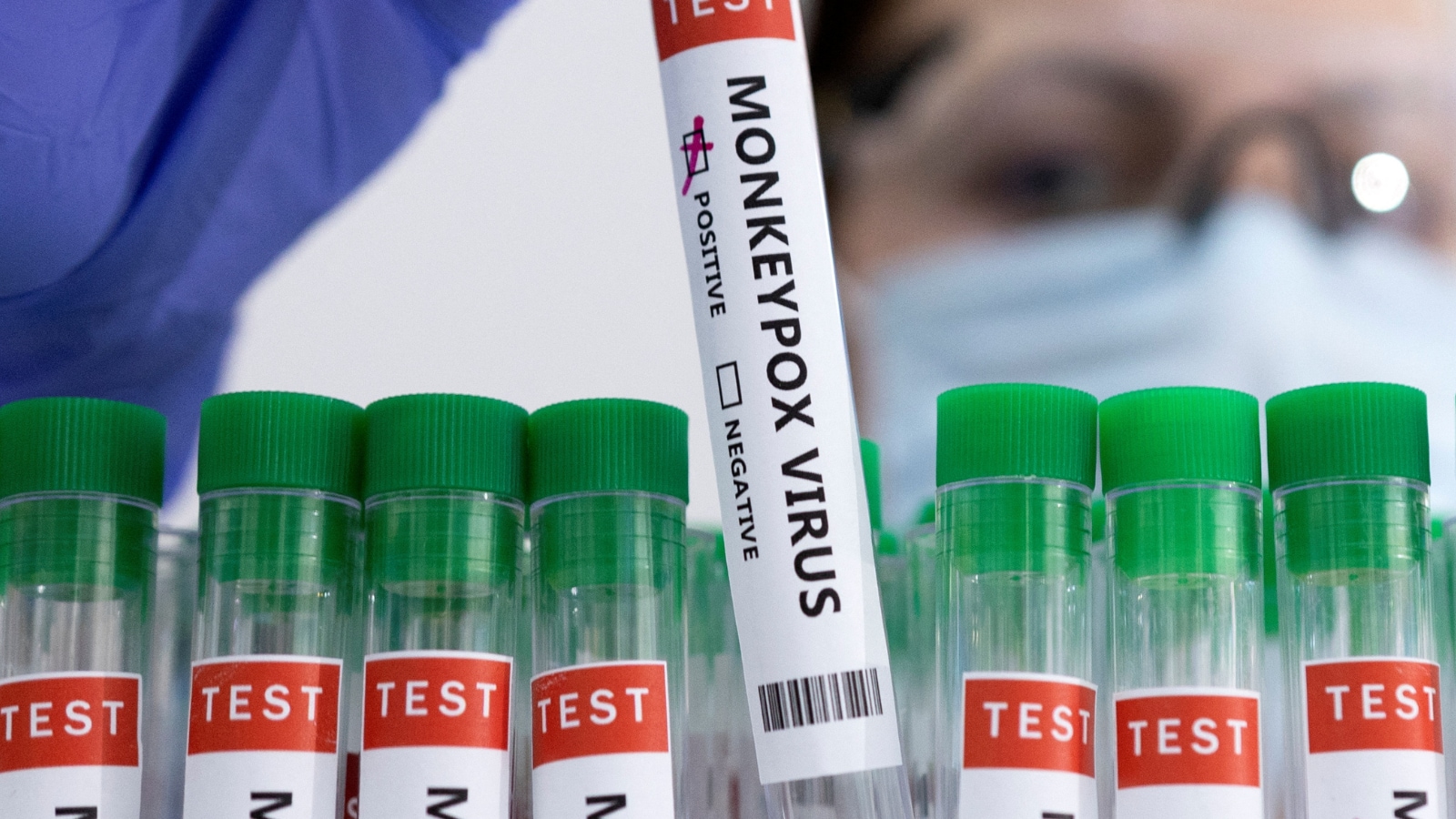Monkeypox Outbreak: India’s First Patient ‘Fully Cured’; Spain Reports 2nd Death | What We Know So Far
India’s first monkeypox patient from Kerala has recovered from the disease and is “completely cured”, state Health Minister Veena George said on Saturday. The health condition of the other two patients who had also tested positive for the infection in Kerala remains satisfactory, she said, adding that prevention and surveillance measures would be continued with the same vigour.
India has so far recorded four confirmed cases of monkeypox — three in Kerala and one in Delhi. Other suspected cases have tested negative as of now.
In the wake of this, the Centre has issued guidelines for health workers to manage cases, which include a 21-day isolation period, wearing masks, following hand hygiene, keeping lesions fully covered and waiting for them to fully heal.
Here are some updates on monkeypox in other parts of the world:
First fatalities outside Africa
Spain reported its second monkeypox-related death in two days.
On Friday, Spain and Brazil reported their first monkeypox fatalities, which are considered to be the first fatalities outside Africa in the current outbreak.
Spain has reported 3,750 patients out of which 120 have been hospitalised and two have died, according to a report by the Spanish health ministry, which did not specify the date of the second death.
The report said that the victims were “two young men”, and that studies were under way to gather more “epidemiologic information” on both cases.
In Brazil, a monkeypox patient from Belo Horizonte, the capital of the southeastern Minas Gerais state, died on Thursday, and the state health ministry said that he “was receiving hospital treatment for other serious conditions” as well.
As per the AFP, it is unclear whether the three deaths were actually caused by monkeypox, with Spanish authorities still conducting autopsies to ascertain the cause of death and Brazil’s statement that stated that the patient who died was suffering from “serious comorbidities”.
More deaths expected in Europe
The WHO’s European office said that more monkeypox-linked deaths can be expected in Europe. According to the WHO, over 18,000 cases have been recorded globally so far, out of which a majority have been from Europe.
While the disease has been detected in 78 countries, 70 percent of the cases were found in Europe and 25 percent in the Americas, according to WHO chief Tedros Adhanom Ghebreyesus.
“With the continued spread of monkeypox in Europe, we will expect to see more deaths,” Catherine Smallwood, Senior Emergency Officer at WHO Europe, said in a statement on Saturday.
However, Smallwood also emphasised that in most cases the disease heals itself and does not require treatment. “The notification of deaths due to monkeypox does not change our assessment of the outbreak in Europe. We know that although self-limiting in most cases, monkeypox can cause severe complications,” she said.
New York declares disaster emergency
In the United States, New York governor Kathy Hochul declared a disaster emergency amid the monkeypox outbreak.
According to data from the US Centres for Disease Control and Prevention (CDC), the country detected 3,487 cases of the virus as of July 26, behind only Spain with 3,596 reported infections.
“I am declaring a State Disaster Emergency to strengthen our ongoing efforts to confront the monkeypox outbreak,” she tweeted late on Friday night, adding that more than one in four monkeypox cases in the US are in New York, “currently having a disproportionate impact on at-risk groups.”
“We are working around the clock to secure more vaccines, expand testing capacity, and educate New Yorkers on how to stay safe,” she wrote.
LGBTQ community confronts stigma
While there is still widespread confusion among the public about the exact nature of the disease, the group currently affected the most is men who have sex with other men.
While it has not been labelled a sexually transmitted infection and can infect anyone through close physical contact, the WHO urged gay and bisexual men this week to limit their sexual partners.
The situation has evoked parallels with the 1980s when HIV/AIDS was stigmatised and labelled as a “gay plague” and ignored by the authorities as a serious threat. Given this, the recent outbreak raises fear of homophobia and stigmatisation among the community and it has also prompted anger that the US government is not taking the disease seriously enough.
The US health department announced plans to allocate an additional 786,000 vaccine doses, which will take supply above one million, as per the AFP, but for many, the response has come too late.
“This event is yet another traumatic time for a lot of us. Hopefully vaccine access will significantly increase in the next six to eight weeks,” Dan Wohlfeiler, who has worked with HIV and STI prevention for over three decades, told AFP. “The more steps that we take as individuals starting now to protect ourselves and our partners, the sooner we can end this outbreak.”
According to WHO, monkeypox is a viral zoonosis (a virus transmitted to humans from animals), with symptoms similar to those seen in smallpox patients in the past in smallpox patients, although it is clinically less severe. Early symptoms include a high fever, swollen lymph glands and a chickenpox-like rash.
The disease usually heals by itself after two to three weeks, sometimes taking a month.
A smallpox vaccine from Danish drug maker Bavarian Nordic, which is marketed under the name Jynneos in the United States and Imvanex in Europe, has also been found to protect against monkeypox.
Read all the Latest News and Breaking News here
For all the latest world News Click Here

